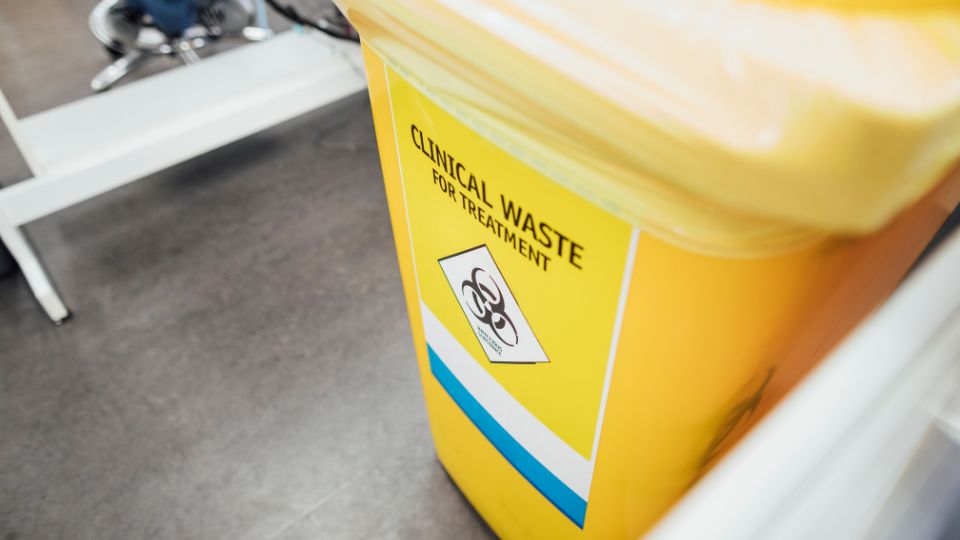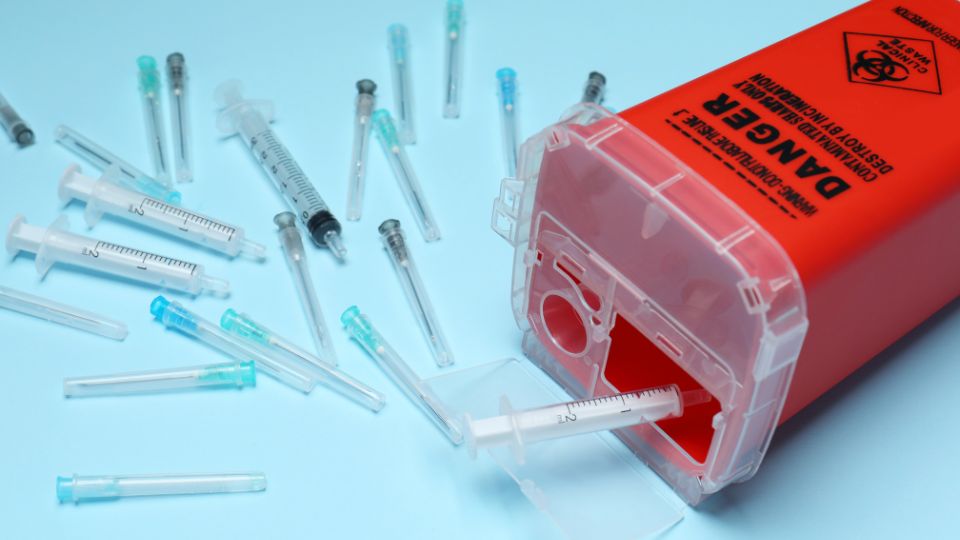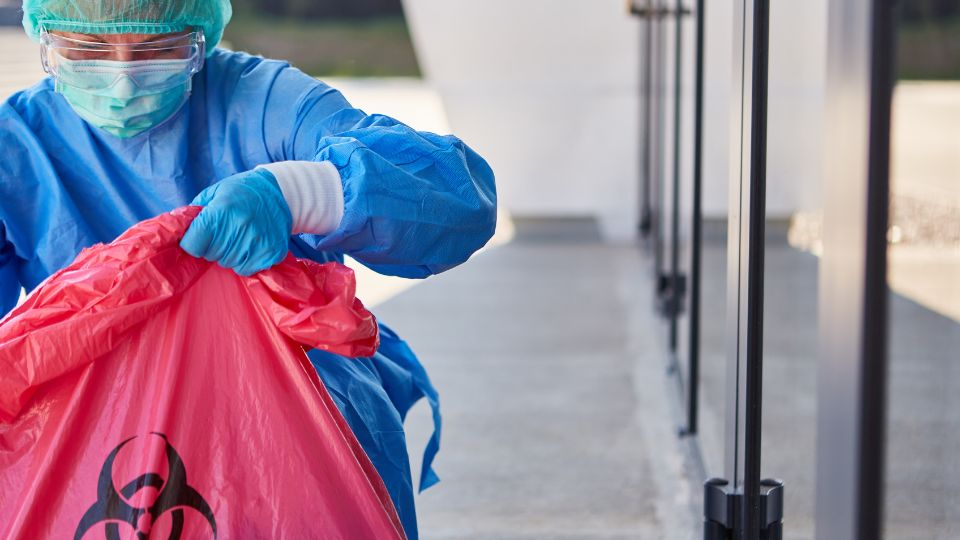
Quick Summary:
- Clinical waste, including hazardous medical and pharmaceutical waste, should not be sent to landfills due to health, safety, and environmental concerns.
- The UK has strict regulations governing clinical waste disposal, including the Controlled Waste Regulations 1992 and the Hazardous Waste Regulations 2005, which mandate secure and compliant disposal methods.
- To ensure safe and legal disposal of clinical waste, businesses should implement proper segregation, staff training, and partner with licensed waste management providers.
Table of Contents
- Understanding Clinical Waste
- Can Clinical Waste Go to Landfill?
- What Are the Rules for Medical Waste in the UK?
- Conclusion
As a business owner in the UK, managing various types of waste effectively is crucial—not just for environmental reasons but also for adhering to legal regulations.
Clinical waste, which includes any waste that could potentially be contaminated with pathogens or chemicals, is a particularly sensitive category.
One of the pressing questions that arise is, “Can clinical waste go to landfill?” Let’s explore this issue in detail and understand the best practices for the disposal of clinical waste.
Understanding Clinical Waste

Clinical waste encompasses any waste that arises from medical, pharmaceutical, or healthcare settings and poses a risk of infection or contamination. This includes items like sharps waste, contaminated dressings, and other materials potentially hazardous to public health.
Can Clinical Waste Go to Landfill?
No, clinical waste should not go to landfills. Here’s why:
Health and Safety Risks
Clinical waste can pose significant health risks. If not properly managed, it could lead to the spread of infections or other health hazards. Landfilling such waste doesn’t eliminate these risks and can potentially expose the public to dangerous pathogens.
Legal Regulations
In the UK, the disposal of clinical waste is strictly regulated. According to the Controlled Waste Regulations 1992 and the Hazardous Waste Regulations 2005, clinical waste must be managed according to specific guidelines to protect public health and the environment.
Landfilling clinical waste is generally prohibited under these regulations.
Environmental Impact
Landfills are not designed to handle the hazardous nature of clinical waste. This can lead to contamination of soil and groundwater, posing long-term environmental risks.
What Are the Rules for Medical Waste in the UK?

In the UK, the disposal of medical waste is governed by several key regulations and guidelines:
- Controlled Waste Regulations 1992: These regulations classify various types of waste, including clinical waste, and dictate how they should be managed.
- Hazardous Waste Regulations 2005: These regulations specifically cover the disposal of hazardous waste, which includes certain types of clinical waste. Businesses must ensure that hazardous clinical waste is disposed of through authorised and compliant waste management services.
- Waste Management Hierarchy: The UK waste management hierarchy emphasises reducing waste generation and reusing materials where possible. This means employing rigorous protocols for waste minimisation and secure disposal methods for clinical waste.
- Specialist Waste Management Services: Clinical waste must be handled by specialist waste management companies. These companies are equipped to manage and treat clinical waste under regulatory standards, typically using methods like autoclaving or incineration.
Conclusion
Clinical waste should never be sent to landfill due to the significant health, safety, and environmental risks involved. Adhering to UK regulations and employing best practices for the disposal of clinical waste not only helps protect public health but also ensures that your business is compliant with the law.
By integrating secure waste management practices and partnering with specialist providers, you can manage clinical waste effectively and responsibly.








